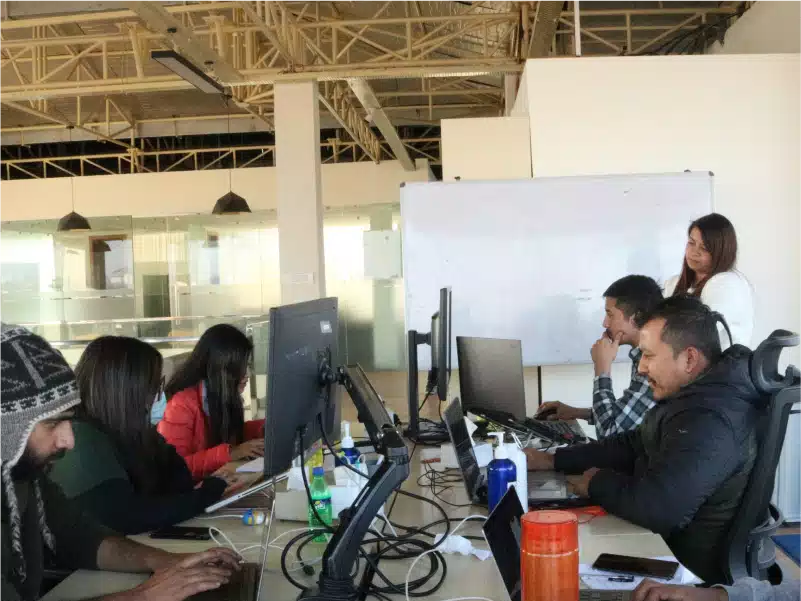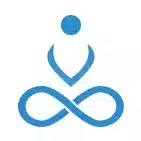When Kshitiz Maskey joined Gurzu as a consultant, she had no plans of changing her career as a hospitality manager and venturing into the unknown world of software development project management. But now she’s here, working as a full-time project manager at Gurzu and skillfully leading a team of developers creating world-class software projects.
In part I of the Gurzu Insights series, we had a conversation with Kshitiz about this unlikely journey and how she has made it happen. She also talks about trends in project management, agile software development and management 3.0.
How did you get started as a project manager? How challenging was it to change your career path and enter a new industry?
I had been working in a managerial role in the Hospitality industry for quite some time before joining Gurzu. I knew the founders and admired their passion for their work and the software industry.
I joined Gurzu as a consultant and subject matter expert for a project in 2021. The software we were working on was a property management system that would simplify the daily operations of the hotel and all its departments. I enjoyed working on the project very much and felt my experience was valued here.
Whether it was time flexibility or teaching me the technical requirements, my team was always there to make things easier. In no time, I was hooked on the work and the workplace. After six months of working on the project, I was offered a position at Gurzu and happily accepted it.
Have you ever faced any struggles understanding your team (consisting mainly of developers) or communicating with them owing to your non-technical background?
Of course! Mainly in the beginning, I used to be lost in discussions because of the technical jargon. To my surprise, my team members, colleagues, and seniors have been patient and supportive of me. They were always eager to explain things to me.
I, too, like to communicate with my team in simple terms focusing on the pain points, and I give them full liberty to come up with solutions. They describe these solutions to me in “layman” terms. With mutual understanding and discussions, we decide what works best for everyone.
This approach has worked excellently for us: I teach my team the business prospect of the project, and they teach me “how” the project is built. In this way, no one is left behind.
What does a project manager actually do?
Requirement gathering, understanding a project, managing, ensuring its delivery in the set standards, analyzing, and reporting the project’s performance and various risks involved are all the responsibilities of a project manager. A project manager works as a liaison between the client and the development team,
In short, a project manager is doing everything to ensure everything is in order from the team’s and client’s sides.
What does your typical workday at Gurzu look like?
My typical day consists of meetings, meetings, and some more meetings!
Jokes apart, a project manager is also in charge of various other activities besides overlooking a project. Such as assisting the sales team when required for a sales pitch, keeping track of the organization’s portfolio, and analyzing, improving, and implementing operational activities.
As a scrum master, my duties include coordinating and facilitating portfolio and tribe meetings and ensuring all necessary reports are up to date and activities are aligned. I also find time to study relevant articles to help me improve my work.
Besides my regular work, I try to have casual time to bond with my team. Whether it is while working, lunching, or just having a good laugh, you can always find my team together.

Gurzu team primarily works on offshore development projects. How do you stay in sync with the clients? How do you build trust with them? How do you communicate technical jargon to them?
Depending on the timezone, I schedule meetings that best fit the team and the client. In addition to this, all necessary emails and communications are forwarded so that the client can get back to us once they are available. This way, we reduce time gaps and ensure communication is constantly flowing.
Constant communication and empathy is the best way to build trust. When clients feel that you understand what they are looking for, you have their back to ensure development is as per their conceptualization. It is easier to gain their trust this way.
I use as little jargon as possible with the client and keep my tone simple, understandable, and descriptive. I am not great with technical jargon either, so it is even easier for me to empathize with our clients.
You might also like: 6 things to consider before hiring an offshore team
What are some tools/processes that make your work easier as a project manager?
Nothing fancy, really. I still write notes on a book (still old school), and I use google workspace for daily work and google calendar for time management. I also use GitLab, Jira, confluence, wiki, etc.
We practice scrum framework for development and management 3.0 which has massively helped my team.
When work gets overwhelming, I maintain a checklist of ToDos, sometimes in a notebook and sometimes on a note file on my computer.
Tell us more about Management 3.0 and Scrum processes.
Management 3.0 is a mindset rather than a framework. It provides a vast collection of games, tools, and practices to help leaders build a more engaging team.
Our team has used a selected few of their practices, such as kudos cards, the 4L approach to the retrospective, and the diversity index, and for these, we have received overwhelmingly positive feedback. It feels so satisfying to see other teams picking up these practices as well.
We have found that these practices are fun, engaging, and insightful. There is so much a PM can learn about the status of their team through these processes.
Similarly, Scrum is one o the agile frameworks that allows product development to be carried out in short and incremental iterations through collaborative teamwork. We use Scrum as our software development framework, but again, I believe Scrum is a mindset rather than just a framework. Scrum encourages to be open to change, keep client collaborations first, prioritize interactions and cross-functionality and ensure and facilitate small increments in every milestone or sprint.
Staying true to the principle would mean being open to change, keeping client collaborations first, prioritizing interactions and cross-functionality, and ensuring and facilitating small increments in every milestone or sprint.
What is your major advice to upcoming project managers?
Till you have your core and mindset right, it doesn’t matter what tools you use; you will be on the right track.
Your team is your most prized possession. Take time to understand how every individual operates and then create a way to help them collaborate and grow. When your team is happy, they will own the project as their own and will never back down from taking up a challenge or pushing the production through. Sometimes leading a team means following. Believe in your team. This becomes an excellent motivation for the team, and the results are simply incredible.
Every day and every project is a challenge. Teams and even us as managers sometimes push ourselves too much to attain deadlines which results in burnout. Make room for refreshment and bonding time every once in a while. Celebrate every small success of the team! Everyone deserves it!
Have empathy towards the client. Understand the project as your own. Always try to think from the business aspect to be closer to the mindset of the client and help your team understand this.
What kind of trends do you see in project management?
I see project management getting more team-centric and more focused on cross-functionality. We want every team member to understand the business aspect of what they are building.- the “why” behind what we are building.
What is the biggest myth about project management?
Well, there are quite a few, actually. “Customers are always right,” “process is everything,” and “deadlines over quality” are some examples. We all tend to follow the mentioned lines at some point. These beliefs are helpful to a certain extent, but think and answer this question, is that our core value and what we aim for?
………..
Gurzu is a software development company passionate about building software that solve real-life problems. Explore some of our awesome projects in our success stories.
Have a tech idea that you need help turning into reality? Book a free consulting session with us!

